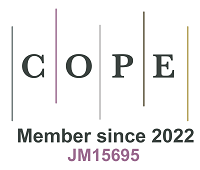The Latest Articles on Cognitive Impairment and Neurodegenerative Diseases
Our staff editors continue to share exciting, interesting, and thought-provoking reading material in the recommended articles series.
This week, we would like to share several latest articles on Cognitive Impairmentand Neurodegenerative Diseases.
Title: Psilocybin to promote synaptogenesis in the brains of patients with mild cognitive impairment
Authors: Jianmeng Song, Jianmeng Song, Aron Amaev, Fumihiko Ueno, Edgardo Torres Carmona, Vincenzo De Luca, Bruce Pollock, Alastair Flint, M. Ishrat Husain, Ariel Graff-Guerrero, Philip Gerretsen
Type: ResearchArticle
Abstract:
Amnestic mild cognitive impairment (aMCI) may represent a prodromal stage of Alzheimer disease dementia (ADD) for which there are no known treatments. There is renewed interest in using psychedelics, including psilocybin, to treat neuropsychiatric disorders. Evidence suggests that psilocybin exerts its psychedelic, and possibly its clinical effects, through 5HT2A serotonin receptor (5HT2A-R) agonism. Intriguingly, reduced 5HT2A-R density in the neocortex is associated with cognitive impairment. Promisingly, the results of preclinical studies suggest psilocybin may promote synaptogenesis in brain regions associated with learning and memory, possibly facilitated by 5HT2A-R agonism. As such, psilocybin is worth exploring as a novel therapeutic for aMCI to counter neurogenerative disease progression. Using a double-blind-placebo controlled design, the proposed Positron Emission Tomography study will determine whether psilocybin increases synaptic density, as measured by the radioligand [18F]SynVesT-1, in the hippocampus and prefrontal cortex of patients with aMCI, and if changes in synaptic vesicular density are associated with improvements in cognition.
Access this article: https://doi.org/10.1016/j.mehy.2023.111068
Title: The impact of gamma transcranial alternating current stimulation (tACS) on cognitive and memory processes in patients with mild cognitive impairment or Alzheimer's disease: A literature review
Authors: N.R. Nissim, D.V.H. Pham, T. Poddar, E. Blutt, R.H. Hamilton
Type: Review
Abstract:
Background
Transcranial alternating current stimulation (tACS)—a noninvasive brain stimulation technique that modulates cortical oscillations through entrainment—has been demonstrated to alter oscillatory activity and enhance cognition in healthy adults. TACS is being explored as a tool to improve cognition and memory in patient populations with mild cognitive impairment (MCI) and Alzheimer's disease (AD).
Objective
To review the growing body of literature and current findings obtained from the application of tACS in patients with MCI or AD, highlighting the effects of gamma tACS on brain function, memory, and cognition. Evidence on the use of brain stimulation in animal models of AD is also discussed. Important parameters of stimulation are underscored for consideration in protocols that aim to apply tACS as a therapeutic tool in patients with MCI/AD.
Findings
The application of gamma tACS has shown promising results in the improvement of cognitive and memory processes that are impacted in patients with MCI/AD. These data demonstrate the potential for tACS as an interventional stand-alone tool or alongside pharmacological and/or other behavioral interventions in MCI/AD.
Conclusions
While the use of tACS in MCI/AD has evidenced encouraging results, the effects of this stimulation technique on brain function and pathophysiology in MCI/AD remains to be fully determined. This review explores the literature and highlights the need for continued research on tACS as a tool to alter the course of the disease by reinstating oscillatory activity, improving cognitive and memory processing, delaying disease progression, and remediating cognitive abilities in patients with MCI/AD.
Access this article: https://doi.org/10.1016/j.brs.2023.04.001
Title: Anti-oxidative-initiated cognitive impairment amelioration in Alzheimer's Disease model rats through preventive transcutaneous electrical acupoint stimulation
Authors: Heng Weng, Qing Wang, Ran Ye, Yamei Bai, Hui Yang, Guihua Xu, Qiuqin Wang
Type: Research Article
Abstract:
Alzheimer's disease (AD) is a chronic and irreversible neurodegenerative disease. Oxidative stress emerges at the early AD stage. As a non-invasive therapy with few adverse reactions, transcutaneous electrical acupoint stimulation (TEAS) combines acupuncture points of traditional Chinese medicine (TCM) and electrical stimulation. This study aimed to investigate the amelioration effects of preventive TEAS treatment (P-TEAS) on cognitive impairment and oxidative stress in AD model rats. The AD model was established via subcutaneous injections of D-galactose (D-gal, 120 mg/kg/d) into the back of neck for 9 weeks in Sprague Dawley (SD) rats to simulate the oxidative stress in the early AD stage. On the first day of the 10th week, Aβ1-42 (1 μg/μl) was injected into the CA1 regions of the bilateral hippocampus. P-TEAS was synchronized from the first day of subcutaneous D-gal injections for 9 weeks. Empirical measurements showed that P-TEAS can improve the spatial memory ability of AD model rats in the Morris water maze. Superoxide dismutase (SOD) was upregulated in the P-TEAS group. Through the detection of the anti-oxidative stress signaling pathway, namely, Kelch-like ECH-associated protein 1 (Keap1)/ NFE2-related factor 2 (Nrf2), it was found that P-TEAS could promote Nrf2 entering into the nucleus and upregulating the production of protective factors heme oxygenase 1 (HO-1) and NADPH quinone oxidoreductase 1 (NQO1). It was also found that P-TEAS could downregulate the expressions of BCL2-associated X-protein (Bax), caspase 3, and caspase 9 to inhibit neuronal apoptosis. P-TEAS has similar efficacy to electroacupuncture in preventing AD occurrence and development.
Access this article: https://doi.org/10.1016/j.imr.2023.100946
Title: Associations between self-reported sleep quality and cerebrospinal fluid biomarkers in mild cognitive impairment and Alzheimer's disease
Authors: J. Durães, P. Marques, A.M. Novo, J. Facas, D. Duro, M. Lima, M.J. Leitão, M. Tábuas-Pereira, I. Baldeiras, I. Santana
Type: Research Article
Abstract:
Sleep disorders are very common in mild cognitive impairment (MCI) and Alzheimer's disease (AD). Several parameters of polysomnography seem to correlate with cognitive scores and amyloid biomarkers in the different stages of AD. However, there is limited evidence for the relationship between self-reported sleep impairment and disease biomarkers. In this study, we assessed the relationship between self-reported sleep complaints, with the Pittsburgh Sleep Quality Index, and both cognitive function and cerebrospinal fluid biomarkers in 70 patients with MCI and 78 patients with AD. Sleep duration and daytime dysfunction were higher in AD. Daytime dysfunction had a negative correlation with cognitive scores (Mini-Mental-State Examination and Montreal Cognitive Assessment) and with amyloid-beta1–42 protein, and a positive correlation with total tau protein. However, daytime dysfunction was an independent predictor only of t-tau values (F = 57.162; 95% CI: [18.118; 96.207], P = 0.004). These findings support a relationship between daytime dysfunction, cognitive scores and neurodegeneration, further expanding recent findings that it may signal a risk of dementia.
Access this article: https://doi.org/10.1016/j.neurol.2022.12.009
Title: Acteoside palliates D-galactose induced cognitive impairment by regulating intestinal homeostasis
Authors: Maiquan Li, Mingzhi Zhu, Wei Quan, Weisu Huang, Xia Liu, Can Zhang, Baiyi Lu, Xing Xiao, Zhonghua Liu
Type: Research Article
Abstract:
Acteoside, an important phenylethanol glycoside, is the main active component in Osmanthus fragrans flower. Our previous study found that acteoside showed high antiaging effect but its absorption rate was low. We speculated acteoside palliated aging-related cognitive impairment before being absorbed, that was intestinal homeostasis underlie the antiaging effect of acteoside. In this study, acteoside was confirmed to palliate cognitive impairment in D-galactose induced aging mice. Acteoside treatment dramatically reduced oxidative stress, alleviated intestinal inflammation, restored intestinal mucosal barrier, rebuilt gut microbiome structure and upregulated gut microbiome metabolites short-chain fatty acids (SCFAs) and amino acids (AAs). Furthermore, antibiotic treatment revealed that the antiaging ability of acteoside is abolished in microbiota depleted mice, which offers direct evidence for the essential role of gut microbiota in the attenuation of cognitive impairment of acteoside. Together, our study indicated that acteoside palliated cognitive impairment by regulating intestinal homeostasisand acteoside intake might be a promising nutritional intervention in prevention of neurodegenerative diseases.
Access this article: https://doi.org/10.1016/j.foodchem.2023.135978







